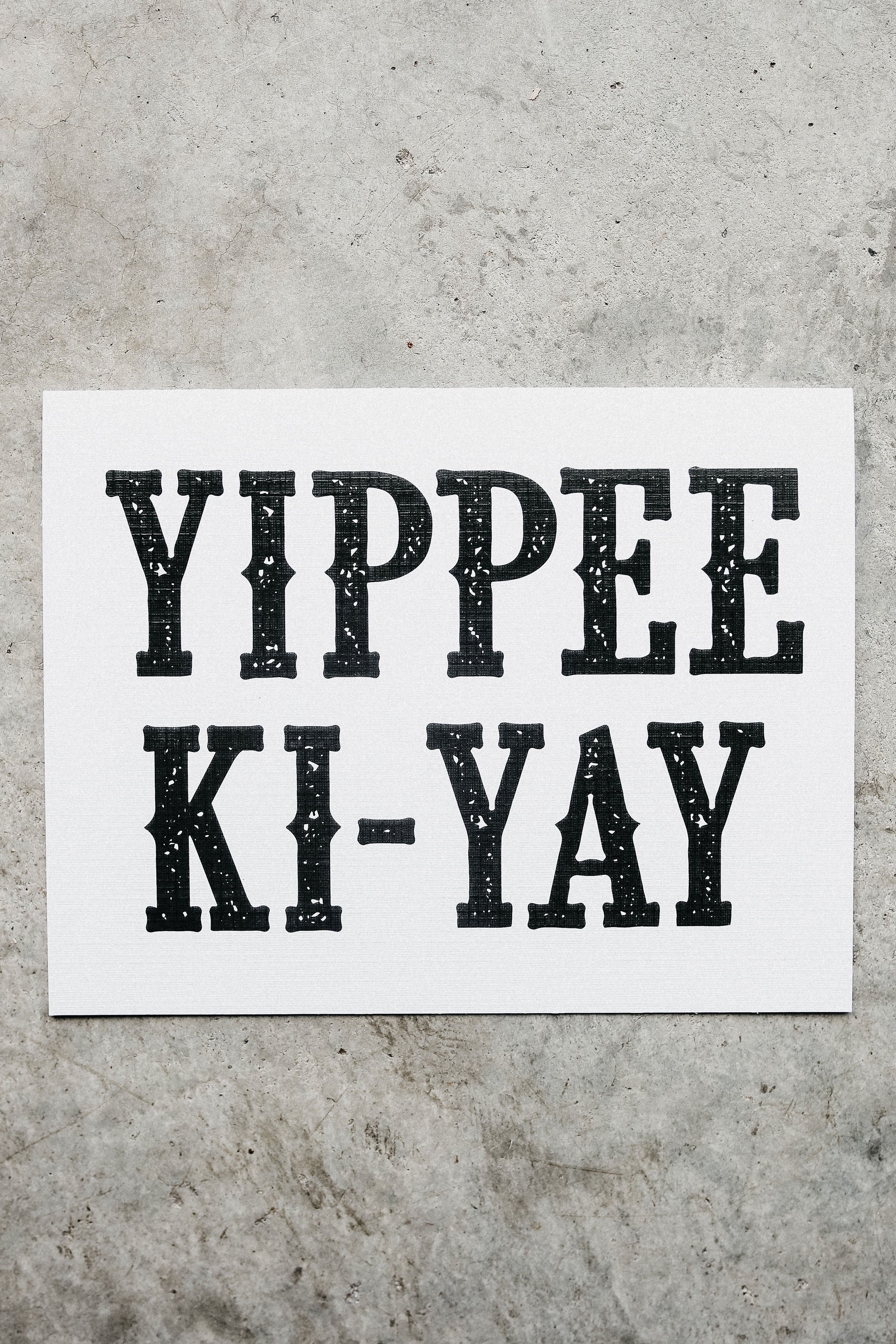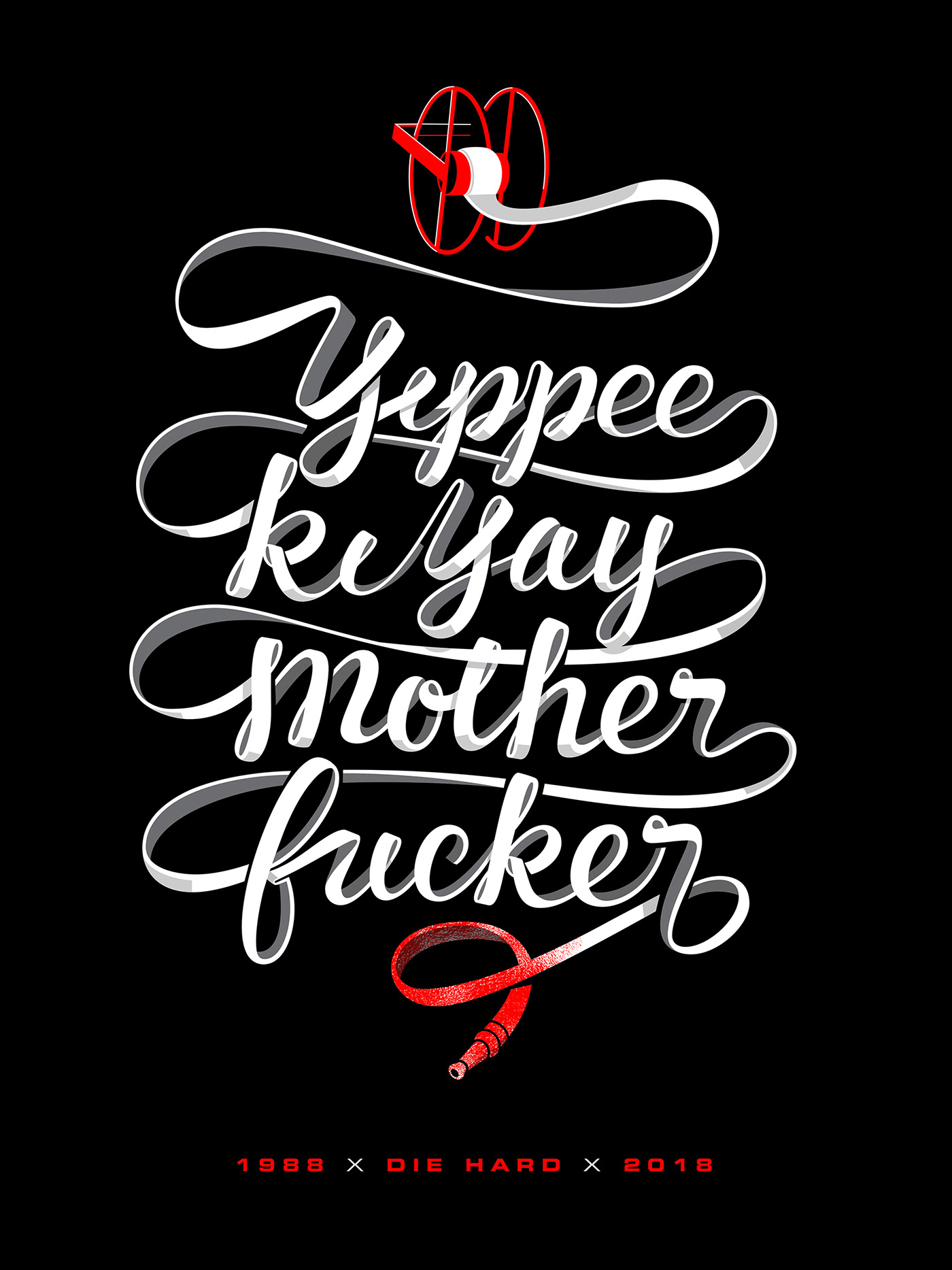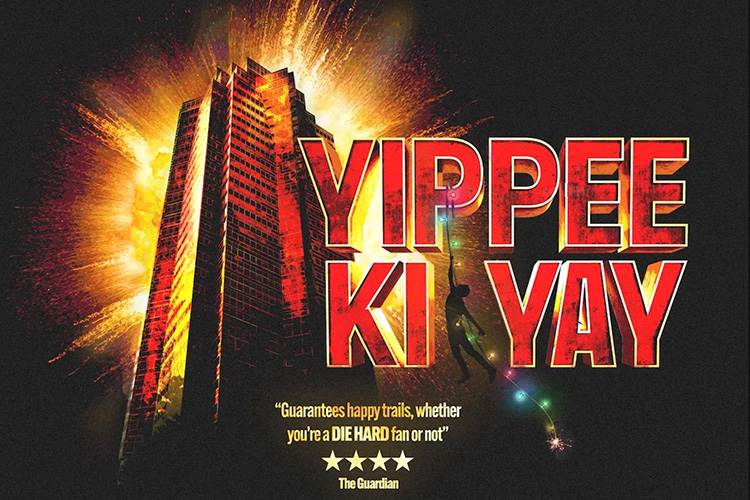Yippee-ki-yay is one of the most iconic phrases in modern pop culture, thanks largely to its association with the Die Hard movie series. This simple yet powerful phrase has captivated audiences worldwide and continues to be used in various contexts, from casual conversations to formal references. In this article, we will explore the origins, meaning, and cultural significance of the yippee-ki-yay full phrase, delving into its journey from a movie script to a global phenomenon.
The phrase yippee-ki-yay has become synonymous with action-packed scenes and heroic moments. Its popularity stems from the way it was delivered by actor Bruce Willis in the role of John McClane in the 1988 film Die Hard. The phrase quickly became a fan favorite and has been referenced countless times in media since its debut.
This article aims to provide an in-depth understanding of the yippee-ki-yay full phrase, covering its historical background, cultural impact, and modern-day usage. Whether you're a fan of the Die Hard series or simply curious about the phrase's origins, this guide will offer valuable insights and information.
Read also:Zach Bryans Birthday Unveiling The Life And Legacy Of A Rising Country Star
Table of Contents
- The Origin of Yippee-Ki-Yay
- What Does Yippee-Ki-Yay Mean?
- How Yippee-Ki-Yay Became Popular
- Common Usage of Yippee-Ki-Yay
- Yippee-Ki-Yay in Movies and TV Shows
- Yippee-Ki-Yay in Music
- Yippee-Ki-Yay on the Internet
- Linguistic Analysis of Yippee-Ki-Yay
- Cultural Significance of Yippee-Ki-Yay
- The Future of Yippee-Ki-Yay
The Origin of Yippee-Ki-Yay
The yippee-ki-yay full phrase first appeared in the 1988 film Die Hard, where it was famously delivered by Bruce Willis as John McClane. The phrase originated as part of the script written by screenwriters Jeb Stuart and Steven E. de Souza. In the movie, McClane uses the phrase to taunt a villain, adding the word "motherf***er" at the end for emphasis.
Historical Context
The phrase draws inspiration from traditional cowboy expressions like "yippee-ki-yay" and "yeehaw," which were commonly used in Western films and literature. These expressions were often associated with celebrations, victories, or moments of excitement. The addition of "motherf***er" in Die Hard gave the phrase a modern twist, making it more edgy and memorable.
Initial Reception
At the time of its release, the phrase was met with mixed reactions. Some critics found it humorous and clever, while others deemed it crude and unnecessary. However, audiences quickly embraced the phrase, and it became a defining moment in the film's legacy.
What Does Yippee-Ki-Yay Mean?
The yippee-ki-yay full phrase can be broken down into two parts: "yippee-ki-yay" and the additional word (often "motherf***er"). The first part, "yippee-ki-yay," is a playful and celebratory expression, while the second part adds a layer of intensity and defiance.
Read also:Taliacutea Acapulco Shore The Rising Star Of Mexican Reality Tv
Linguistic Breakdown
- Yippee: An exclamation of joy or excitement.
- Ki-yay: A rhythmic addition that gives the phrase a cowboy-like feel.
- Motherf***er: A profanity used for emphasis, adding a sense of urgency or frustration.
Together, the phrase conveys a sense of triumph, defiance, and resilience, making it a perfect fit for the character of John McClane in Die Hard.
How Yippee-Ki-Yay Became Popular
The popularity of yippee-ki-yay can be attributed to several factors, including its association with the Die Hard franchise, its catchy nature, and its adaptability to various contexts.
Cultural Impact
Since its debut in Die Hard, the phrase has been referenced in countless movies, TV shows, video games, and even music. Its versatility allows it to be used in both humorous and serious situations, making it a favorite among fans of action and adventure genres.
Media Influence
Media outlets have played a significant role in spreading the phrase's popularity. From memes to viral videos, yippee-ki-yay has been reinterpreted and shared across various platforms, ensuring its continued relevance in modern culture.
Common Usage of Yippee-Ki-Yay
Today, yippee-ki-yay is used in a variety of contexts, both in formal and informal settings. Below are some common ways the phrase is employed:
- Action Movies: Often used to convey heroism or bravery.
- Internet Memes: Used humorously in memes and GIFs.
- Everyday Conversations: People use the phrase to express excitement or frustration.
- Marketing Campaigns: Brands incorporate the phrase into advertisements to appeal to fans of the Die Hard series.
Yippee-Ki-Yay in Movies and TV Shows
Die Hard is not the only film to feature the yippee-ki-yay full phrase. Several other movies and TV shows have referenced or parodied the phrase, cementing its place in pop culture history.
Notable References
- The Simpsons: The animated series has featured the phrase in multiple episodes, often as a nod to Die Hard.
- Family Guy: The show has used the phrase in comedic contexts, highlighting its versatility.
- Other Action Films: Movies like Deadpool and Zombieland have referenced the phrase, paying homage to its origins.
Yippee-Ki-Yay in Music
The influence of yippee-ki-yay extends beyond film and television, with several musicians incorporating the phrase into their songs. This further solidifies its status as a cultural icon.
Famous Songs
- Run-D.M.C: The rap group's song "Christmas in Harlem" features a reference to Die Hard and the yippee-ki-yay phrase.
- Other Artists: Various artists have sampled or referenced the phrase in their music, showcasing its widespread appeal.
Yippee-Ki-Yay on the Internet
The internet has been a major driver of the yippee-ki-yay full phrase's popularity. Memes, GIFs, and viral videos featuring the phrase have spread rapidly across social media platforms.
Internet Memes
Some of the most popular memes featuring yippee-ki-yay include images of Bruce Willis as John McClane, often paired with humorous captions or scenarios. These memes have helped introduce the phrase to a new generation of internet users.
Linguistic Analysis of Yippee-Ki-Yay
From a linguistic perspective, the yippee-ki-yay full phrase is fascinating due to its combination of traditional and modern elements. The phrase blends cowboy-inspired expressions with contemporary slang, creating a unique and memorable sound.
Phonetic Characteristics
- Rhythm: The phrase has a natural rhythm that makes it easy to remember and repeat.
- Emphasis: The use of profanity adds emphasis, making the phrase more impactful.
Cultural Significance of Yippee-Ki-Yay
The cultural significance of yippee-ki-yay lies in its ability to evoke strong emotions and connect people across different generations and backgrounds. Its association with the Die Hard franchise has made it a symbol of resilience and determination.
Cross-Cultural Appeal
Despite its origins in American pop culture, the phrase has gained popularity worldwide. Its universal themes of triumph and defiance resonate with audiences of all ages and nationalities.
The Future of Yippee-Ki-Yay
As the yippee-ki-yay full phrase continues to evolve, its future looks bright. With new adaptations of the Die Hard franchise and ongoing references in media, the phrase is likely to remain a staple of pop culture for years to come.
Potential Developments
- New Media: The phrase may appear in future films, TV shows, and video games.
- Merchandising: Brands may continue to use the phrase in marketing campaigns and merchandise.
Conclusion
In conclusion, the yippee-ki-yay full phrase has become an enduring symbol of action, adventure, and cultural relevance. From its origins in the Die Hard series to its widespread use in media and everyday life, the phrase continues to captivate audiences worldwide. Its linguistic and cultural significance ensures its place in history as one of the most iconic phrases in modern pop culture.
We invite you to share your thoughts on the yippee-ki-yay full phrase in the comments below. Have you used the phrase in your own life? How do you think it will continue to evolve in the future? Don't forget to explore other articles on our site for more fascinating insights into pop culture and beyond!


